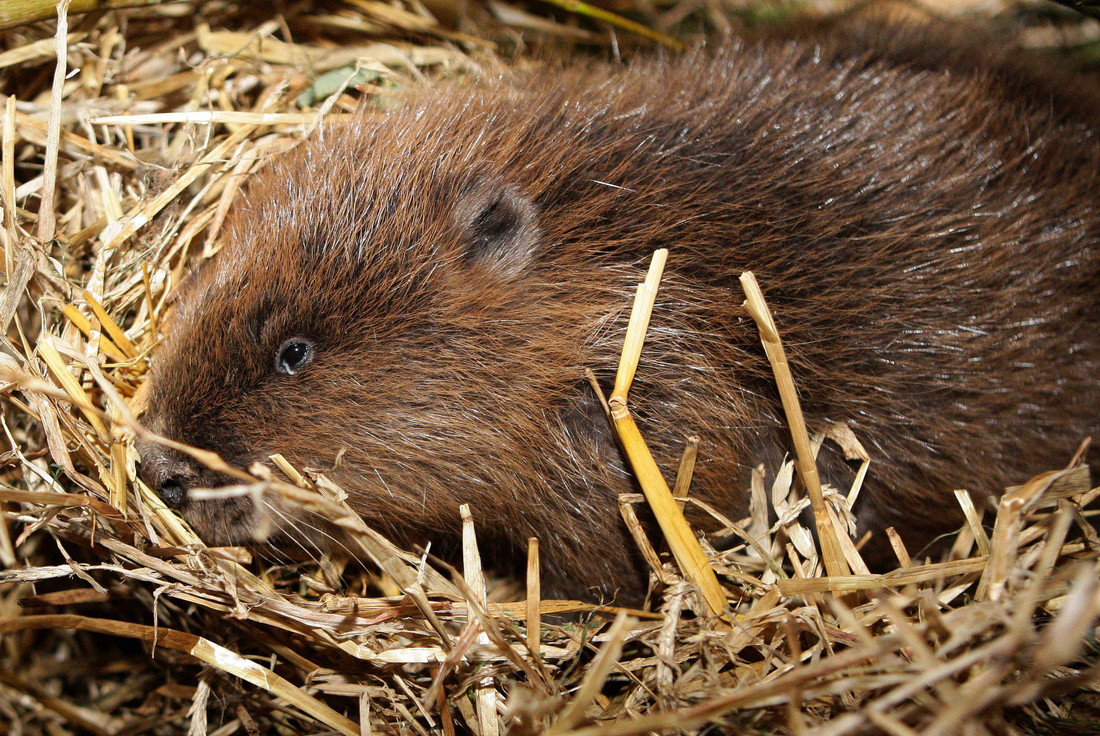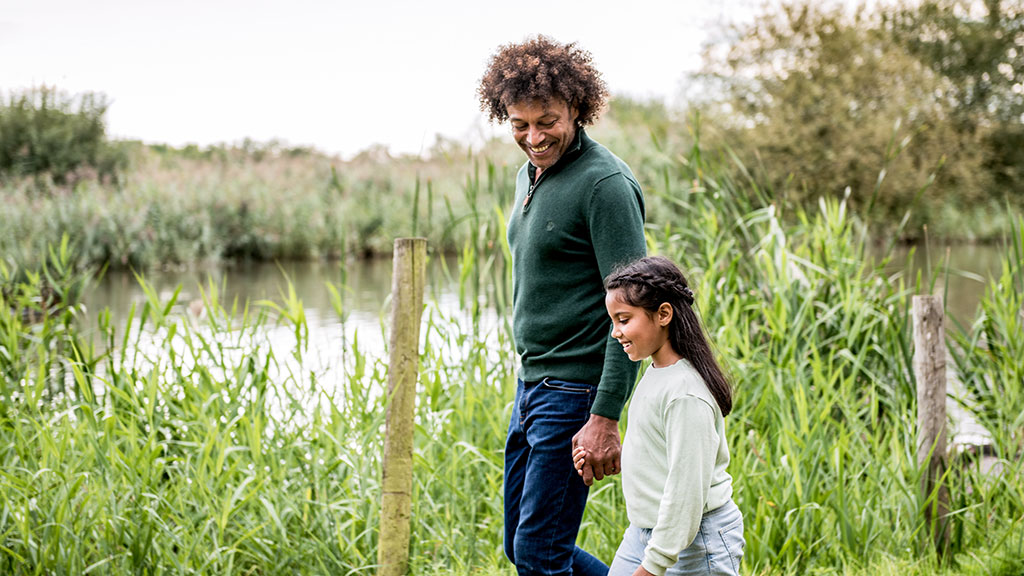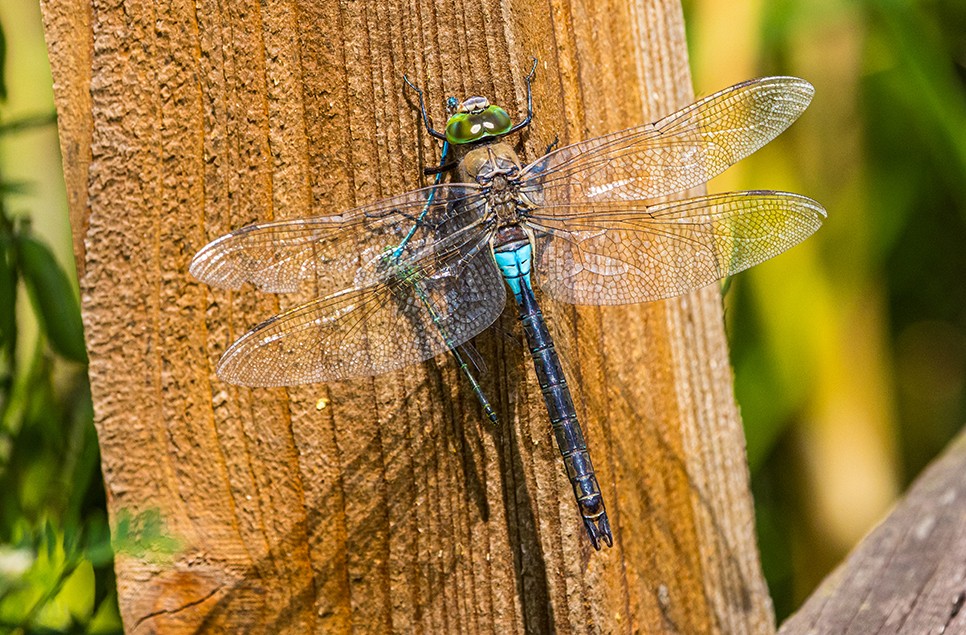WWT joins coalition calling for long-term plan for England's beavers

The Government should allow wild beavers to remain in England and expand naturally through river catchments, with robust local management and monitoring of the animals, say members of a coalition which includes WWT.
The call for an English Beaver Strategy – a long-term plan for restoring beaver populations in the country – follows the UK Government’s groundbreaking decision earlier this month to allow England’s first breeding population of beavers for 400 years to remain in the River Otter in Devon, after a trial that highlighted how beavers benefit people and wildlife.
The wide-ranging English Beaver Strategy Working Group – made up of 39 organisations including the National Farmers' Union (NFU), Wild Trout Trust, Thames Water, National Trust and RSPB, were brought together by the small charity Beaver Trust to form a consensus on the future of beavers in England. Together, they sent proposals for an English Beaver Strategy to Defra and Natural England today (August 14).
Although not everyone in the Working Group can support the detailed proposals for restoring beavers, all agree collaboration is the key – and a long-term plan for beavers is essential. This follows two months of engagement and represents a major step forward after Defra’s news on August 6 that beavers on the River Otter may remain.
James Wallace, Director of Beaver Trust and convenor of the English Beaver Strategy Working Group, says:
“It is critical for people with different views to collaborate on how to co-exist with beavers. These ecosystem engineers could help us tackle issues across river catchments like water security, floods, pollution and loss of wildlife. Beavers can help improve our lives and livelihoods, and their wetlands reconnect people with the rest of nature.
“Like beavers, this collaboration is a symbol of hope in challenging and often polarised times. Understandably, some people are concerned about beavers returning to heavily-managed land and rivers. We recognise the need to help mitigate risks of negative impacts on farmland, watercourses and infrastructure – and so we are convening diverse interest groups to create a strategy that works for everyone. The trick with beavers is to start early, raise awareness, engage communities and ensure funding and local support are in place well before they return.”
Members of the group are asking the Government to recognise beavers as native with appropriate legal status in England and to ensure safeguards enable timely, responsible and effective management and their reintegration into the landscape.
They have requested:
● Government asked to allow wild beaver populations to remain and expand naturally in England
● Beavers should be recognised as native and given appropriate legal status
● Robust national management framework with funding and local support is required
● Licensed releases including from enclosures should be planned on suitable river catchments
● Government asked for a timeline to agree a beaver restoration plan with a 25 year vision
The Eurasian beaver (Castor fiber) co-evolved in Britain with other native wildlife such as fish, birds, mammals, amphibians and invertebrates. It is listed as ‘Critically Endangered’ in England on the IUCN-compliant Red List.
The beaver is a European Protected Species (EPS) in Europe under the EU Habitats Directive. EPS status was given to beavers in Scotland in 2019 and allows licensed management including translocation, dam removal and lethal control . England can learn from other countries how to achieve the right balance.
A properly-resourced national management framework is needed with public and private funding and locally-led community support to help people live alongside beavers again, says the group.
Led by Devon Wildlife Trust, the River Otter Beaver Trial resulted in the publication of a Science and Evidence Report and Beaver Management Strategy Framework using a hierarchy of increasing impact starting with education, risk avoidance, mitigation, then trapping and relocation, and finally lethal control.
James Robinson, Director of Conservation at Wildfowl and Wetlands Trust (WWT) says: "Beaver Trust's process has been a gold standard for stakeholder engagement. I am very impressed and may pinch it! We at WWT encourage other stakeholders to join up and be heard."
Harry Barton, CEO of Devon Wildlife Trust, says: “The River Otter Beaver Trial has shown that beavers can thrive in the wild in England and that they and local communities can co-exist very well in a managed and productive landscape. It has also shown how potential benefits can be maximised and conflicts managed through engagement, landowner advice and support. This groundbreaking work should now form the basis of a national strategy and management framework so that communities across the country can benefit from these amazing animals. Partnership is the key to success, and we are delighted to be collaborating with around 40 organisations from a wide range of interests to make sure the success of the River Otter Beaver Trial expands into a green revolution in our wetland landscapes across the country.”
Importantly within the English Beaver Strategy Working Group, land management groups and conservationists are working together, sharing experience and ensuring everyone is represented and heard.
Ann Maidment, Director South West of CLA says: “Given the momentum and support for the reintroduction of the beaver in England, the CLA believe strongly in the importance of having a clear framework for their future management, including stakeholder consultation. We were therefore pleased to be involved in this strategy – working together collaboratively with other stakeholders, to ensure that the importance of the landowning, farming and fishing communities are represented and their rights protected.”
Beaver Trust’s engagement process tries to ensure everyone is heard and compromise will be reached. There is a shared understanding that some members of the Working Group are not able to support the strategy proposals.
Shaun Leonard, Director of Wild Trout Trust says: “Research shows the impact of beavers on trout and salmon can be both positive and negative. English rivers and their fish populations are already suffering from fragmentation of habitat due to tens of thousands of weirs and culverts. Beavers’ habitat engineering activity, including building dams, could be problematic for fish in many rivers. We can’t support the proposals at this stage, but by participating in the Working Group we will be able to influence the future strategy for beaver introductions and their management.”
Members of the group say that a plan is needed for where and how to increase beaver populations in the wild as an integrated part of river catchment plans targeting areas where benefits outweigh the costs.
The first enclosed beaver trial in England was at Ham Fen in 2002. There are now nine enclosures – including research sites at the Cornwall Beaver Project and Spains Hall Estate – where data shows the impacts of beaver-created wetlands on water flow, purity and biodiversity.
Following unofficial releases, beavers live in wild, self-sustaining populations in some English rivers. In 2016, habitat mapping in Scotland showed 104,000 hectares of beaver-friendly habitat. Beavers could be integrated within existing catchment spatial plans in England including buffers to allow rivers to flow naturally and reduce conflict. Licensed releases, including from enclosures, should follow catchment assessments, community consultation and establishing local support groups.
Emma Marsh, Director of RSPB England says: “The RSPB is pleased to be working in partnership with conservation, fishing, farming and forestry organisations to develop a national strategy for beavers in England and to ensure the right balance of protection and management for this species. We would like to see beavers restored to suitable habitat in England, living harmoniously alongside land managers and treasured by local communities for the benefits, including natural solutions to flood risks that they provide.”
Beaver Trust and the English Beaver Strategy Working Group have encouraged Defra and Natural England to publish a timeline to engage with stakeholders.
“We must welcome a new era of urgent, creative and respectful collaboration, where we listen to each other, put aside our differences and make decisions that benefit all members of the community. Everyone has a stake in our planet’s future, and, with the right support, the humble beaver can help restore the rivers that sustain us and much of our wildlife,” said Beaver Trust’s James Wallace.



